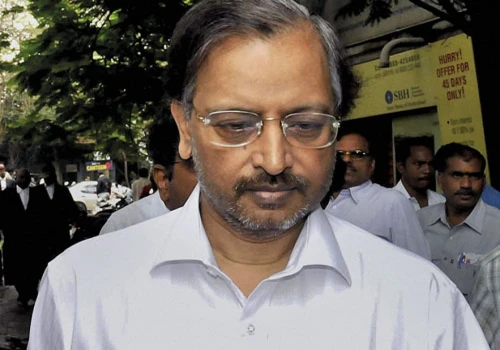
For decades, the global tech industry has relied heavily on a handful of countries for semiconductor production. These tiny chips are the brains behind countless electronic devices, from smartphones to medical equipment. However, India is set to disrupt this trend with the upcoming launch of its domestic chip manufacturing facility.
The Tata Group, one of India's largest conglomerates, is leading the charge. Their mega semiconductor fabrication facility in Dholera, Gujarat, is a joint venture with Taiwan's Powerchip Semiconductor Manufacturing Corporation (PSMC). This "fab" is expected to be operational by 2 and will boast a production capacity of up to 50,000 wafers per month.
The initial focus will be on 28-nanometer chips, but the plant has the capability to produce even smaller, more advanced 22-nanometer chips in the future. These chips will cater to a wide range of applications, including high-performance computing, electric vehicles (EVs), telecommunications, and consumer electronics.
This domestic production capability is a significant milestone for India. It promises to reduce the country's dependence on foreign chipmakers and bolster its technological independence. Previously, India relied heavily on imports, leaving it vulnerable to supply chain disruptions and price fluctuations. Local production will not only ensure a stable supply but also potentially bring down costs.
The benefits extend beyond immediate economic gains. A robust domestic chip industry can fuel innovation across various sectors. It can empower Indian companies to develop cutting-edge electronics and create new job opportunities in the technology sector. Furthermore, a strong domestic supply chain can attract foreign investment in related fields, fostering a thriving technology ecosystem.
The Tata Group's initiative is just the first step in India's ambitious semiconductor journey. The government has approved proposals for two additional plants in Gujarat and one in Assam. These facilities, along with the upcoming Micron memory chip plant, represent a collective investment of over ₹1.26 lakh crore ($15.7 billion).
This investment underscores the government's commitment to propelling India into the big leagues of chip manufacturing. The IT Minister, Ashwini Vaishnaw, has acknowledged the typical 3-4 year timeline for establishing a chip fab but expressed intentions to expedite the process.
Challenges and the Road Ahead
While the future looks bright, there are challenges to overcome. Establishing a robust chip manufacturing ecosystem requires not just financial muscle but also a skilled workforce. The government and industry leaders need to invest in training programs to create a pool of engineers and technicians equipped to handle the complexities of chip production.
Another challenge lies in intellectual property (IP). While collaboration with established players like PSMC is crucial for the initial stages, long-term success hinges on developing indigenous chip design capabilities. Investing in research and development (R&D) will be paramount to fostering innovation and securing India's place in the competitive global chip market.
Conclusion
India's foray into domestic chip production is a bold undertaking with the potential to transform the nation's technological landscape. The upcoming Tata Group plant in Dholera marks a significant starting point, paving the way for a more self-reliant and innovative India. By addressing the challenges of talent development and IP creation, India can seize this opportunity to become a major player in the global semiconductor industry.












